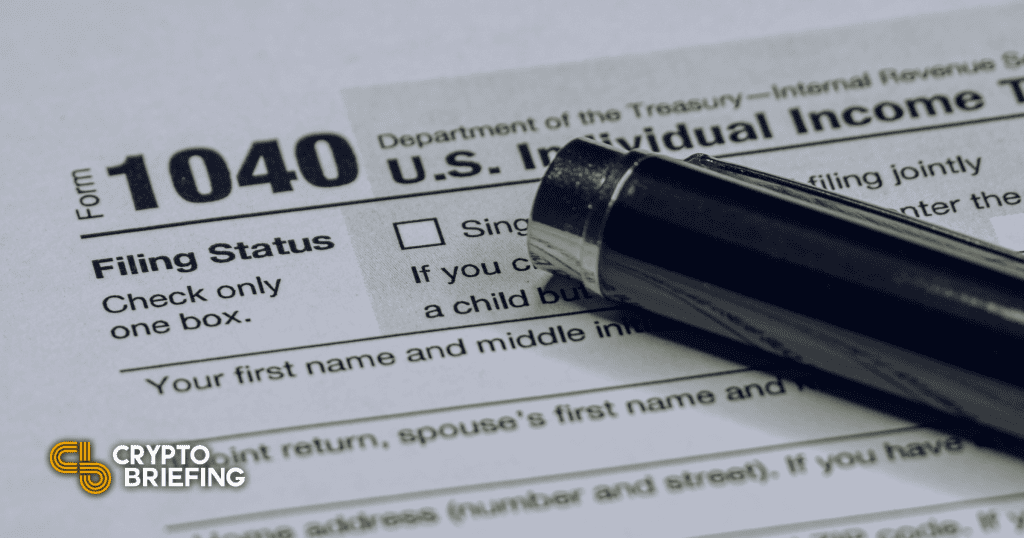
Shutterstock cover by Leonid Sorokin
You Don’t Need to Report Bitcoin Buys Made in Dollars, Says IRS
US tax authority has given more clarity as to how investors should report their crypto activity.
New instructions from The Internal Revenue Service (IRS) say taxpayers do not need to report their crypto purchases made with the dollar.
IRS Eases Investors’ Tax Load
The IRS has provided more clarity when answering the mandatory “Yes/No” question about “virtual currency” transactions on the personal income tax form, Form 1040.
The tax agency has updated its FAQs, writing that investors who purchased cryptocurrency using “real currency” (in this case USD) and held it during 2020 could respond “No” to the question.
“If your only transactions involving virtual currency during 2020 were purchases of virtual currency with real currency, you are not required to answer yes to the Form 1040 question,” the agency wrote.
Before this clarification, there had been confusion among taxpayers, and the ambiguity was related to whether purchasing crypto using fiat money demanded checking “Yes.”
Shehan Chandrasekera, Head of Tax Strategy at CoinTracker, explained that some taxpayers checked “Yes” even when they bought cryptocurrency using USD by assuming they acquired a “financial interest” in cryptocurrency.
The IRS has cleared that confusion with the latest update.
Checking “No” makes sense since purchasing and holding cryptocurrency does not trigger a taxable event, and therefore investors do not unnecessarily make a disclosure.
One critical point to note here is that this rule only applies to purchasing cryptocurrency using fiat money. If a U.S. taxpayer bought cryptocurrency using another cryptocurrency or even stable coins, it would require a “Yes” response.
Other conditions which demand a “Yes” response to the question include:
-
Sale of cryptocurrencies.
-
Exchange of cryptocurrencies for other cryptocurrencies, assets, goods, services, etc.
-
Receipt of cryptocurrencies via airdrops or hard forks.
With the cryptocurrency sector surpassing $1.5 trillion in total valuation, IRS has prioritized crypto taxation for 2020 and has provided enough clarity to ensure proper tax reporting.
Disclosure: None of this is intended as tax or investment advice.
